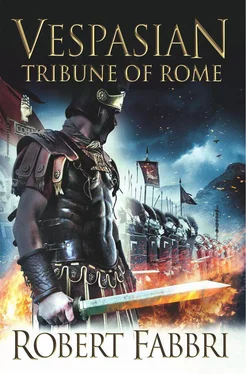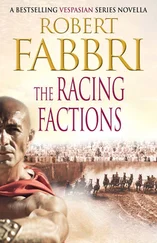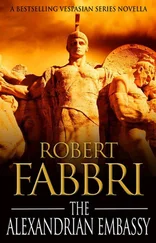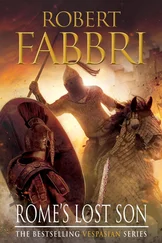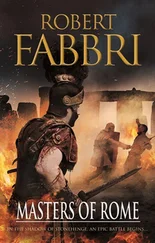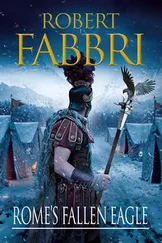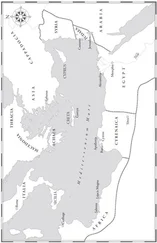Robert Fabbri - Tribune of Rome
Здесь есть возможность читать онлайн «Robert Fabbri - Tribune of Rome» весь текст электронной книги совершенно бесплатно (целиком полную версию без сокращений). В некоторых случаях можно слушать аудио, скачать через торрент в формате fb2 и присутствует краткое содержание. Жанр: Исторические приключения, на английском языке. Описание произведения, (предисловие) а так же отзывы посетителей доступны на портале библиотеки ЛибКат.
- Название:Tribune of Rome
- Автор:
- Жанр:
- Год:неизвестен
- ISBN:нет данных
- Рейтинг книги:3 / 5. Голосов: 1
-
Избранное:Добавить в избранное
- Отзывы:
-
Ваша оценка:
- 60
- 1
- 2
- 3
- 4
- 5
Tribune of Rome: краткое содержание, описание и аннотация
Предлагаем к чтению аннотацию, описание, краткое содержание или предисловие (зависит от того, что написал сам автор книги «Tribune of Rome»). Если вы не нашли необходимую информацию о книге — напишите в комментариях, мы постараемся отыскать её.
Tribune of Rome — читать онлайн бесплатно полную книгу (весь текст) целиком
Ниже представлен текст книги, разбитый по страницам. Система сохранения места последней прочитанной страницы, позволяет с удобством читать онлайн бесплатно книгу «Tribune of Rome», без необходимости каждый раз заново искать на чём Вы остановились. Поставьте закладку, и сможете в любой момент перейти на страницу, на которой закончили чтение.
Интервал:
Закладка:
They hobbled towards the door that had been unbolted by their mother, who had heard the cheering. She stood waiting to help her son into the house.
‘Oh, by the way, wool,’ Sabinus mumbled.
‘What?’ Vespasian asked, thinking that his brother was rambling.
‘What we should be selling at the moment, wool. It’s in demand because winter’s approaching.’
‘Oh, yes, that. You’re quite right, well done for working it out,’ Vespasian replied.
‘I didn’t work it out, I just asked Pallo when we got back yesterday.’ Sabinus grinned. ‘Oh, and get that poultice seen to, you look ridiculous.’
Vespasian looked with a half-smile at his brother and, shaking his head, thought that it was unlikely that he’d ever change. He left him in the care of the womenfolk.
He turned and surveyed the scene in the yard. The fires were now out; just a few wisps of smoke marked where they had caught. The manacled field slaves were being let out of the storerooms and taken back to work. Pallo was organising the piling up of the dead runaways on a pyre outside the gates. Vespasian watched as his javelin was extracted from the top-knotted German and the body was hauled away, leaving a thick trail of blood. It had been his first kill and the thought didn’t shock him. He’d slit the throat of the second man without even thinking; he’d done what he’d had to do to survive and to protect his brother. Anyway, these had just been slaves whose lives were worth only what they would fetch at auction.
Pallo saw him watching the removal of the dead, and walked over. ‘You did well today, Titus Flavius Vespasianus,’ he said formally, according him the respect of a man. ‘Your father must be proud.’
‘Thank you, Pallo, we all did our share; it was a well-conceived plan of my brother’s. How many of our lads were hurt?’
‘One killed and four wounded, none of them too badly.’
‘Who died?’ Vespasian asked.
‘Brennus, a Gallic house slave; he was hit in the eye by a javelin. His son Drest is one of the wounded,’ Pallo replied.
‘We should free the son, it will send a good message to the other slaves should this happen again. I’ll speak to my father.’
As he turned to go a thought occurred to him. ‘Pallo?’ he asked, lowering his voice. ‘Do you know anything about a prophecy to do with me? Something that happened at my birth; you were there, were you not?’ Vespasian looked Pallo in the eye but the steward could not hold his gaze and looked down. ‘Why won’t you answer me?’ Vespasian pressed.
‘I am forbidden to speak of it,’ Pallo whispered uncomfortably.
‘Why? Tell me, Pallo, who forbids you?’
‘The gods,’ Pallo replied, meeting Vespasian’s eye again.
‘Which gods? Why?’ Vespasian was getting more and more agitated and grabbed Pallo by the shoulders.
‘All of them. Your mother made the whole household swear an oath in front of all the gods never to speak of it.’
CHAPTER IV
Sabinus ’ wounds meant that Vespasian’s training was curtailed for a few days. Route marches were not possible but gymnastics, trench-digging and weapons drill were. Vespasian spent hours attacking a six-foot post with a wooden sword and wicker shield, practising the prescribed cuts, thrusts and parries. The sword and shield were designed to be heavier than the real items. This was, explained Sabinus, to strengthen his arms, so that he would find it that much easier to wield regulation weapons. When he was not attacking the post with his wooden sword he was throwing heavy javelins at it. As the days passed the exercises began to feel easier and, although never enjoyable, became less of a burden.
In return, Vespasian began his estate administration lessons with Sabinus. Once they had started on the subject Vespasian found that he knew so much more than he had previously realised and, in his eagerness to get it across, ended up baffling his prostrate brother with a barrage of facts and figures. At first, because of his wounds, Sabinus was forced to sit in one place and was unable to escape the stream of constant information; but as he mended the lessons were held walking or riding around the estate. In this more relaxed atmosphere Sabinus’ eyes were opened to the complex logistical problems faced by an estate manager trying to use his land and manpower to full effect every day of the year. He began to realise that an estate was just a microcosm of an army, or indeed Rome, and to fully understand its workings would greatly improve his chances of success in public life. Vespasian became someone well worth listening to. For his part Vespasian found that sharing his knowledge with his brother helped him to order his thoughts, and strengthened his confidence in what he already knew.
This sense of mutual reliance plus the knowledge that each was indebted to the other for their life precipitated a thawing in their relationship.
The following weeks surprised not only themselves but also their parents; dinner in the early evening stopped being such a confrontational event, becoming instead a review of the subjects mastered or feats achieved during the day.
November passed quickly in this pleasanter atmosphere. The snows arrived on the surrounding peaks and the activity on the estate slowed down for winter, entering a period of make and mend. Walls were repaired, new tools fashioned, a new barn erected and countless other jobs, which had been waiting throughout the summer, were tackled and completed.
Sabinus took advantage of this industry to have a light ballista constructed, so that he could teach his brother the rudiments of artillery fire. He set up an ox head in front of a large sheet of leather and instructed his brother in the science of trajectory, speed and wind variation. Within a week Vespasian could hit the ox between the eyes at a hundred paces with the same ease that Sabinus could write a work roster for fifty slaves and their overseers or tally a profit and loss account.
The season of goodwill, the Saturnalia, came and went with its round of feasting and gift-giving. Three days after its close, on 25 December, Sabinus had just finished celebrating the miraculous birth in a cave, witnessed by shepherds, of Mithras, a new god from the East into whose mysteries he’d been enrolled whilst in the army, when their father called the brothers into his study.
‘Well, my boys, January is almost upon us,’ he began without inviting them to sit down. ‘You have kept your side of the bargain, so I shall keep mine. I have arranged for us to stay, as you did, Sabinus, four years ago, at the house of my brother by marriage, your uncle, Gaius Vespasius Pollo. There we shall have access to the highest social circles in Rome and even to the imperial household itself. Gaius now counts amongst his patrons Antonia, sister by marriage to our illustrious Emperor.
‘As you know, Gaius has no children and is therefore eager that you, his sister’s offspring, should thrive. He will introduce you to wealthy and influential people and write many letters of recommendation and introduction. He is to be respected and honoured; who knows, he may even decide to adopt one of you.’ He paused and looked sternly at his two sons. ‘I have been most impressed by the progress you have both made, not least in your abilities to set aside petty personal differences and work together. This is one of the most important attributes for a Roman nobleman. You will be in a society that is ruthless and competitive where everyone is out for themselves and their family. You will be elected to offices or serve in the legions alongside men who for no apparent reason are your enemy and only see you as someone to outdo. Yet for the good of Rome you must work with these men, as they must work with you. Keep your eyes on them, never trust them, but co-operate with them; if you do that you will be serving both Rome and yourselves well.’
Читать дальшеИнтервал:
Закладка:
Похожие книги на «Tribune of Rome»
Представляем Вашему вниманию похожие книги на «Tribune of Rome» списком для выбора. Мы отобрали схожую по названию и смыслу литературу в надежде предоставить читателям больше вариантов отыскать новые, интересные, ещё непрочитанные произведения.
Обсуждение, отзывы о книге «Tribune of Rome» и просто собственные мнения читателей. Оставьте ваши комментарии, напишите, что Вы думаете о произведении, его смысле или главных героях. Укажите что конкретно понравилось, а что нет, и почему Вы так считаете.
